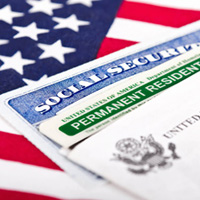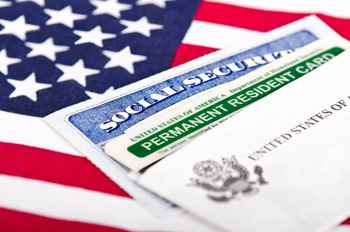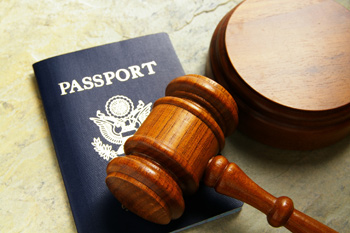Know Your Immigration Rights
 |
Know Your Immigration Rights
By Manju Kalidindi, Esq. Everyone living in the United States has certain basic rights under the U.S. Constitution. According to the 14th Amendment: “All persons born or naturalized in the United States and subject to the jurisdiction thereof, are citizens of the United States and of the State wherein they reside. No State shall make or enforce any law which shall abridge the privileges or immunities of citizens of the United States; nor shall any State deprive any person of life, liberty, or property, without due process of law; nor deny to any person within its jurisdiction the equal protection of the laws.” It is the word “person” that connects the dots of “due process” and “equal protection” in the 14th Amendment to the U.S Constitution, and it is those five words that make the Constitution of the United States and its 14th amendment one of the most important political documents. |
| Therefore, “Aliens,” legal and illegal, have the full panoply of constitutional protections. | |
|
UNDOCUMENTED If you are undocumented and immigration (ICE) agents knock on your door, know that you have the following rights:
|
|
|
LEGAL PERMANENT RESIDENTS AND VALID VISA HOLDERS Always carry any valid immigration document you have with you.
|
|
|
U.S. CITIZENS
However, quite a number of naturalized citizens are fearful and uncertain given the present immigration climate. Even though it is not a requirement, quite a number of naturalized U.S. Citizens as well as those born here who are of a certain ethnic background are carrying evidence such as a copy of their U.S. passports or U.S. passport cards. |
|
|
About the Author
Ms. Kalidindi currently serves as the President of SAHARA of South Florida (www.saharafl.org), a non-profit organization which provides assistance to victims of domestic violence in South Asian communities. |
|
| For more information, call (954)723-9105. | |



 You do not have to open the door or let the officers into your home unless they have a valid search warrant signed by a judge.
You do not have to open the door or let the officers into your home unless they have a valid search warrant signed by a judge. If you have a valid visa, work permit, or green card, be sure to have it with you in case you need to show it for identification purposes.
If you have a valid visa, work permit, or green card, be sure to have it with you in case you need to show it for identification purposes. U.S. citizens (by birth or naturalization) are not required to carry proof of their citizenship status.
U.S. citizens (by birth or naturalization) are not required to carry proof of their citizenship status.




























